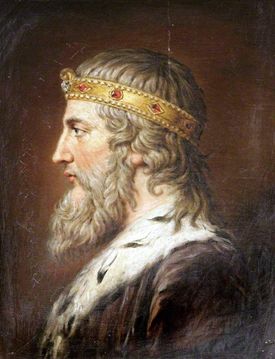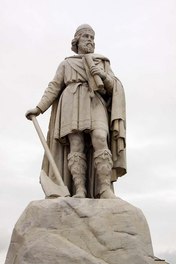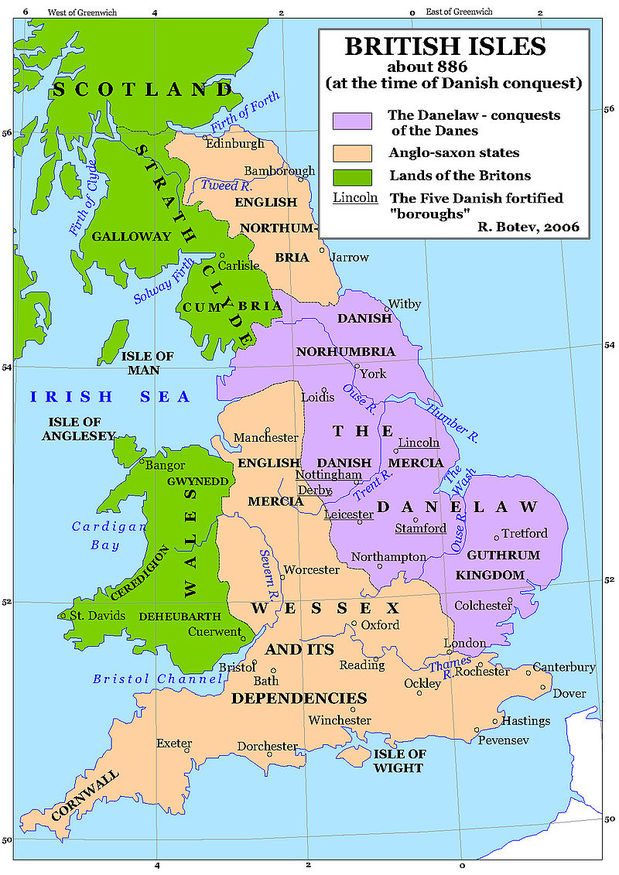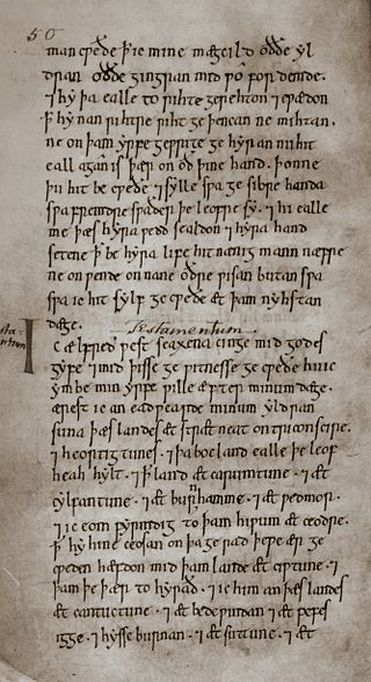 Alfred the Great, King of England Alfred the Great, King of England Alfred the Great, King of the Anglo-Saxons, was born at the royal village of Wantage, in Berkshire in 849. He was the fourth son of King Æthelwulf and his wife, Osburh. Osburh was the daughter of Oslac, who became famous for being the cupbearer to King AEthelwulf. Oslac was a Goth, descending from the “Goths and Jutes —of the seed, namely, of Stuf and Wihtgar, two brothers and ealdormen. They, having received possession of the Isle of Wight from their uncle, King Cerdic, and his son Cynric their cousin, slew the few British inhabitants whom they could find in that island, at a place called Wihtgaraburg^ ; for the other inhabitants of the island had either been slain or had escaped into exile.” Upon King Æthelwulf’s death in 858, all of his sons in order of their birth became king. Through various circumstances, even though Alfred was the youngest, he became King of the Anglo-Saxons or King of England in 871 at Winchester, England and ruled until his death in 899.
He was able to unite the kingdoms of England under one crown. In order to combat sea-borne raiders he had built ships with a size much bigger that those of the Vikings. He founded the British Navy and organized the militia. He compiled a code of laws for England and established courts of justice. During the final ten (10) years of his rule, he like Charlemagne, promoted the education of his court and of the people. He built schools and monasteries. Being a scholar, he invited many scholars to live at the court. He was responsible for the translation of many books. Alfred married Ealhswith (Alswitha), daughter of Earl Aethelred of Mercia & Edburh, d. ca. 905. Alfred, the Great & Ealhswith had five or six children, two of which were Edward, the Elder who succeeded Alfred as King and Æthelflaed who became Lady (ruler) of the Mercians. Lady Margaret Somerville Kirkpatrick was a descendant of Alfred the Great through his son Edward the Elder (c. 874 – 17 July 924). Edward was King from 899 until his death. The following is a generational chart starting with Adam to Shirley Tomlinson Seibel. The lines from Adam to Alfred the Great were compiled by Asser, a Welsh monk who became Bishop of Sherborne in the 890s. About 885 he was asked by Alfred the Great to leave St David's and join the circle of learned men whom Alfred was recruiting for his court. From Alfred the Great, the lineage was compiled by several genealogists and historians. The figures given indicate the generation represented by the name and are the direct lineage from Adam to Shirley Tomlinson Seibel
Sources: 1. Asser’s Life of King Alfred, by Albert S.Cook; 1906 2. Readings in Medieval History 2nd Edition; ed. by Patrick J. Geary; 1997, pg. 223 – 247 3. The Plantagenet Ancestry of King Edward III and Queen Philippa, by George Andrews Moriarty; 1985. 4. A Genealogy of the Shobe, Kirkpatrick, and Dilling Families; by Franklin Dilling Shobe; 1950 ppgs. XVI - XVIII 5. Æthelwulf; Wikipedia, The Free Encyclopedia; URL: https://en.wikipedia.org/wiki/%C3%86thelwulf 6. Alfred the Great; Wikipedia, The Free Encyclopedia; URL: https://en.wikipedia.org/wiki/Alfred_the_Great
1 Comment
|
AuthorMy name is Vicky, and after researching my family history since 1999, I have found amazing stories that need to be told. I hope you enjoy them as much as I have! Archives
May 2023
Categories |



 RSS Feed
RSS Feed